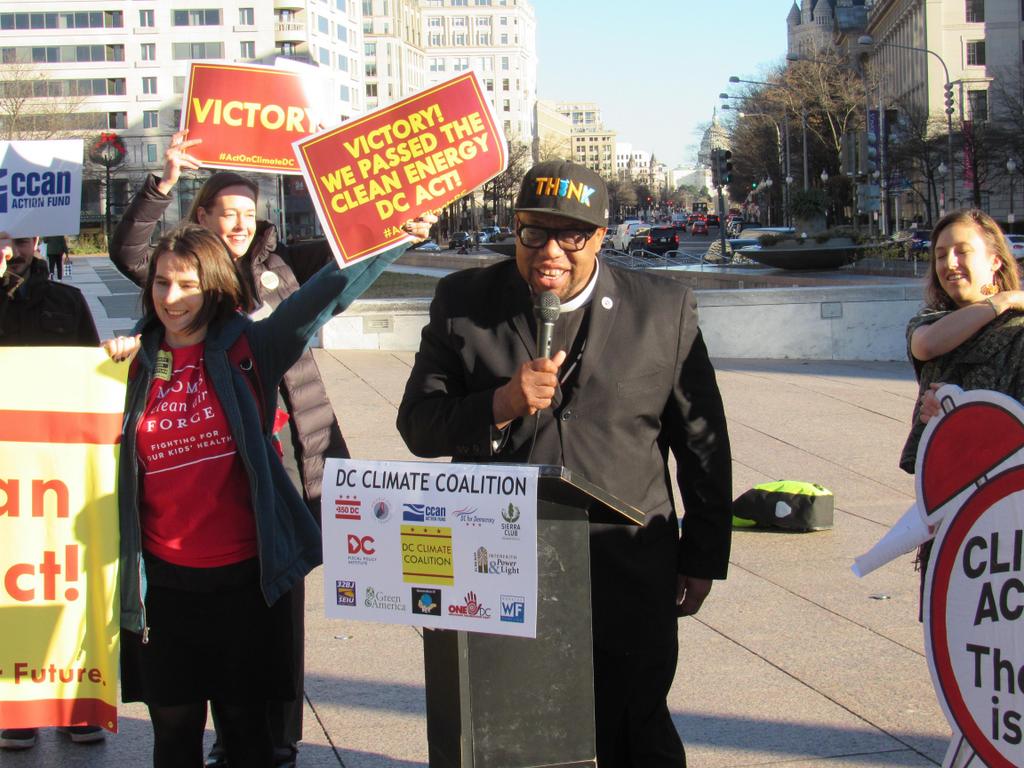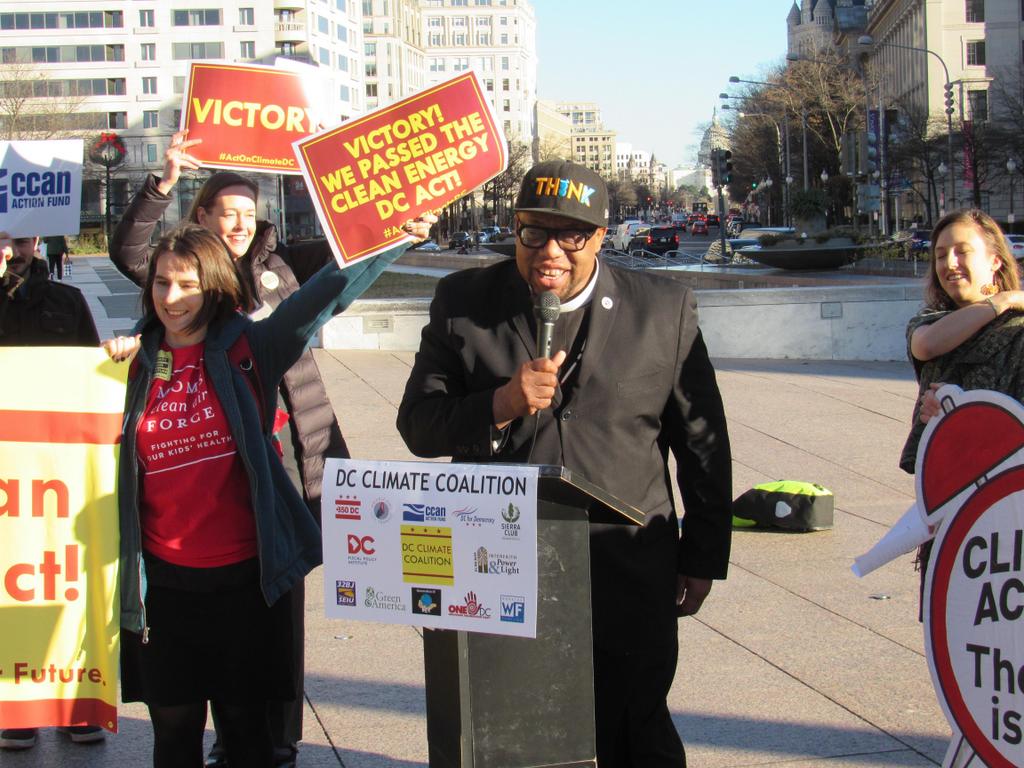[ad_1]
By George Kevin Jordan, AFRO Staff Writer
The crowd erupted in applause Tuesday as the D.C. Council unanimously passed the “Clean Energy D.C. Omnibus Amendment Act of 2018,” a historic bill that will push the District of Columbia’s electric to 100% renewable power by the year 2032.
“We are excited for this precedent sitting history victory that places D.C. at the front of climate leadership in the U.S.,” Camila Thorndike, D.C. Campaign Director for the Chesapeake Climate Action Network (CCAN) Action Fund told the AFRO. “We’re also relieved that three years of work can come to a meaningful conclusion. Everyone’s put in a lot of effort.”

The landmark legislation (Bill 22-904), which was spearheaded by Councilmember Mary Cheh (D- Ward 3), along with Councilperson Kenyan McDuffie (D- Ward 5) among others, accomplishes several groundbreaking things according to the D.C. Climate Coalition including:
- Transition D.C. to 100% renewable energy by 2032
- The bill would increase the Sustainable Energy Trust Fund (SETD) fee on fossil fees, with the revenue form the fee funding the Green Bank at $15 M per year in 2020 and 2021 and $10M per year for the following four years. A portion of those funds is earmarked to benefit low-income residents and invest in programs that create green jobs.
- Building efficiency standards will be the strongest in the country also providing renewable jobs in the District and making buildings more competitive
- It commits the city to reduce transportation sector emission, which incentivizes the purchase of more fuel-efficient cars, as well as reducing transportation emission, and imposing carbon fees on motor fuel.
The Coalition is a body of nearly 100 businesses, activists, environmental organizations and faith and community leaders.
“This Bill is historic,” Council member Cheh said just before the vote adding that, “Unless we take action we will leave a catastrophe to our grandchildren.”
Molly Rauch, Public Health Policy Director for Moms Clean Air Force, was greatly concerned about the environmental impacts on children of D.C.
“We’re seeing increased heat waves and flooding and strains on infrastructure and we know that climate change increases pollen levels,” Rauch said. “We know this is a threat to our children.”
“The bill that was passed today is really history. And it’s incredible to be doing this in the shadow of the White House at a time when the president has turned his back on reality and is completely ignoring what we see as the greatest threat to our children and their future. D.C. is showing the White House we can take matters into our own hands and do something really substantive about this problem and be a model for the rest of the nation.”
The Rev. Lennox Yearwood Jr., president of the Hip Hop Caucus and a board member of CCAN pushed the importance of creating a snowball effect in regards to renewable energy initiatives.
“In 2032 if other cities do not transition from fossil fuel to clean energy it still is game over for future generations,” Yearwood said during a press conference held after the vote. “This is only the beginning. We must take this movement and model it all across the country.”
The Clean Energy D.C. Act was a culmination of years of lobbying, testifying, meetings and time. While the result is a victory, there were parts of the amended document that gave organizers pause.
“The amendments were being negotiated up to the very last minute,” Thorndike said. “It should be a more transparent process.”
Thorndike pointed to the recent merger of Pepco/Exelon, the utility company that serves Maryland and D.C. might position the company to have more sway with the Council. An influence that, “they now currently have.”
But advocates were happy to push back on certain provisions.
“We prevented nuclear energy from being counted as renewable, it’s not renewable,” Thorndike said. “We made sure that the timeline was 2032 and no later.”
After the bill was passed Pepco released the following statement:
“The Clean Energy Omnibus Act is an important step toward advancing the cause of clean energy for the benefit of every Ward in the District of Columbia,” said Dave Velazquez, president and CEO of Pepco Holdings. “Pepco is committed to helping the Council, and all members of our community, address the urgent challenge of climate change.”
Despite the challenges, Clean Air advocates consider the passing of the bill a victory, and keep their eyes directed towards the future.
“It’s really important to remain engaged in the implementation process,” Thorndike said. “The immediate next steps [are] the mayor has to sign it and it goes through a congressional review period. The Next battle ground will be the public service commission and how they interpret elements of this bill.”
[ad_2]
Source link


